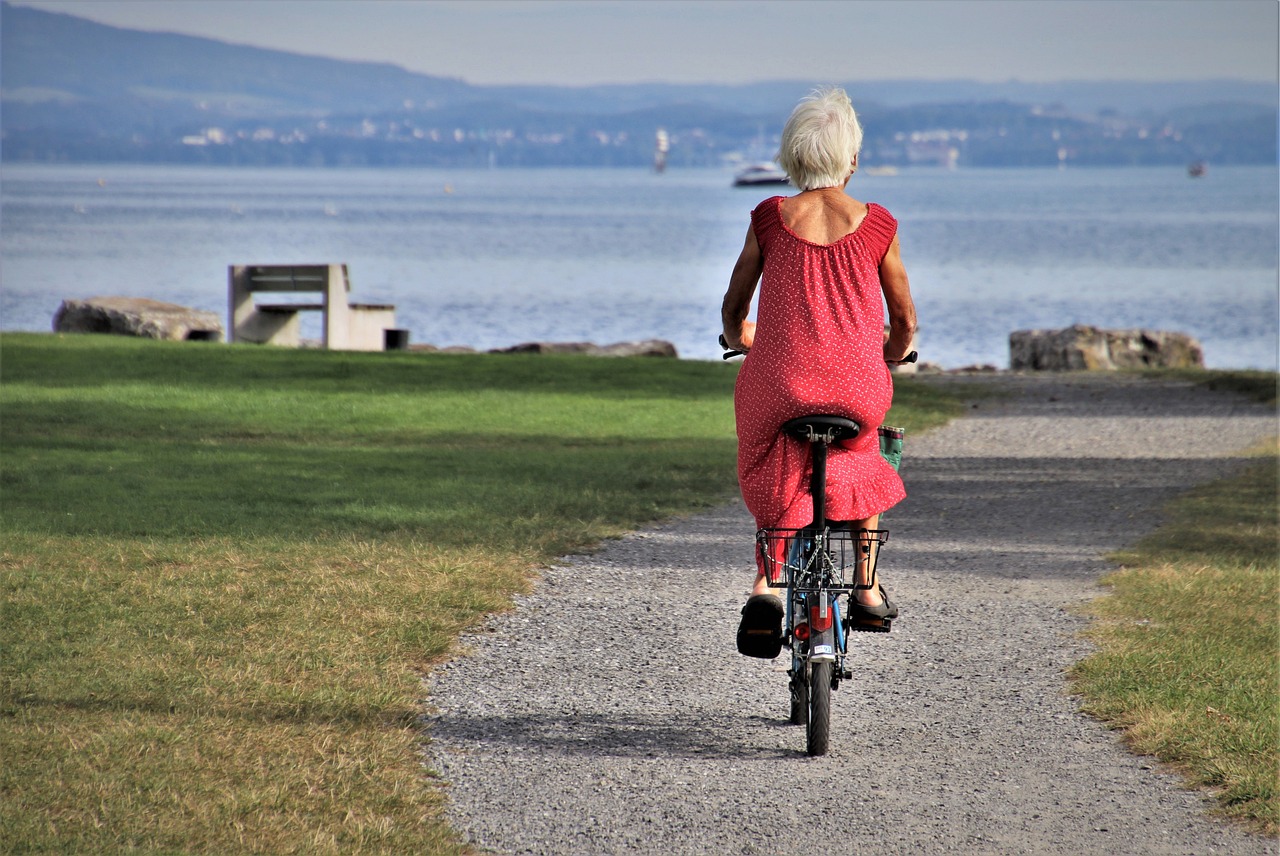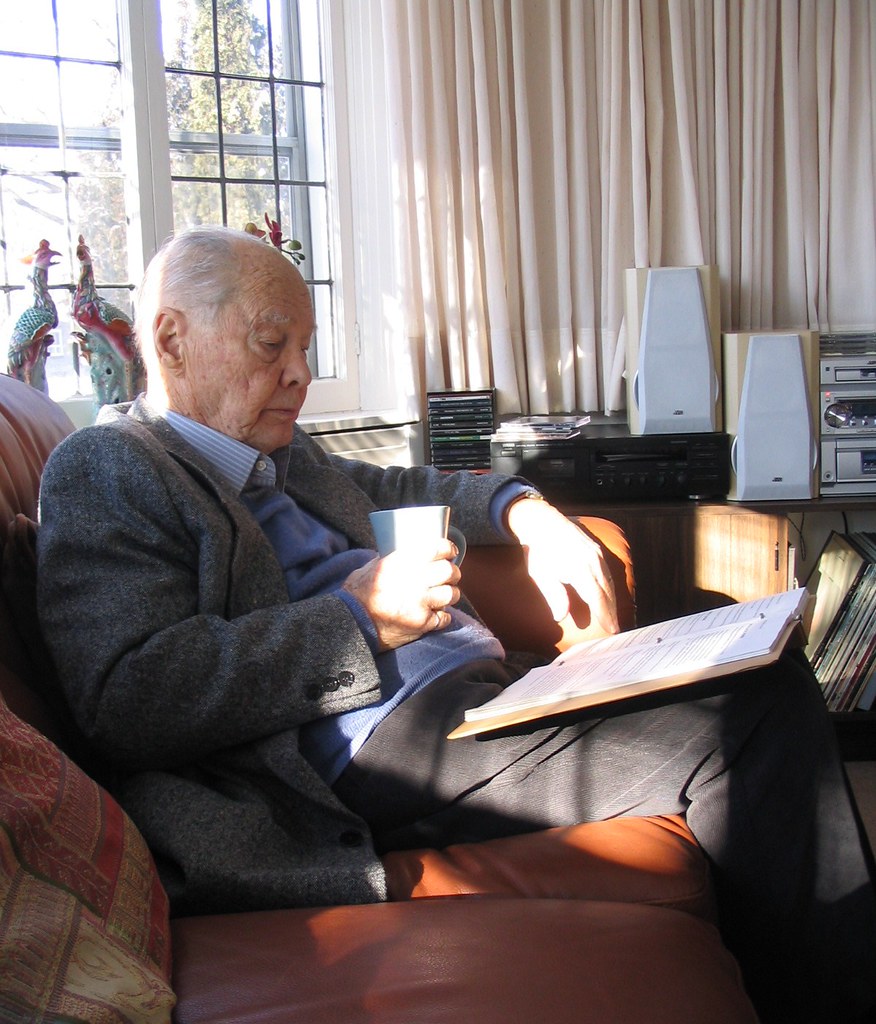Lifestyle
The Challenges and Joys of Living Alone in Your 70s
Discover the challenges and joys of living alone in your 70s. Explore the physical, emotional, social, and financial aspects of this stage of life. Learn how to navigate independence, manage everyday tasks, maintain social connections, and prioritize self-care. Find out how living alone can promote personal growth, reduce stress, and provide flexibility in your daily routines. Embrace the possibilities and pleasures of embracing solitude in your 70s.
Imagine reaching your 70s and facing the reality of living alone. It may seem daunting, but it also brings a unique set of challenges and joys. In this article, we explore the experiences of individuals in their 70s who navigate the complexities of solitude. From learning to embrace independence to finding solace in quiet moments, living alone in your 70s offers a chance for personal growth and self-discovery. Let’s delve into the ups and downs of this stage of life as we discover the endless possibilities and unexpected pleasures that come with embracing solitude.
Physical Challenges
Decreased mobility
Living alone in your 70s can come with its own set of physical challenges. One of the most common issues faced by older adults is decreased mobility. As you age, your muscles and joints may become weaker, making it more difficult to move around with ease. This can make simple tasks such as getting out of bed or going up and down stairs a challenge. However, there are ways to manage this issue. Implementing mobility aids like canes or walkers can provide additional support and make movement easier. It’s also important to engage in regular exercise and stretching to maintain muscle strength and flexibility.
Health concerns
With age, certain health concerns become more prevalent. As you navigate life alone in your 70s, it’s important to be aware of potential health issues and take proactive steps to manage them. Common health concerns among older adults include chronic conditions like arthritis, high blood pressure, and diabetes. Regular visits to healthcare professionals, monitoring your vital signs, and taking prescribed medications can help you stay on top of your health and prevent any potential complications. Remember, maintaining good health is crucial to enjoying a fulfilling and independent life.
Managing everyday tasks
Living alone means being responsible for managing everyday tasks on your own. From cooking meals to cleaning the house, these activities can become more challenging as you age. To make things easier, consider making adjustments to your living environment. Having essential items within easy reach, using tools like reacher grabbers to access items that are higher up, and utilizing technology to automate tasks can all greatly assist in managing everyday tasks. Additionally, reaching out to local resources, such as meal delivery services or housekeeping assistance, can provide valuable support when needed.
Maintaining a safe living environment
Safety is a top priority when living alone in your 70s. As you age, physical vulnerabilities increase, making it essential to take precautions to maintain a safe living environment. Simple modifications in your home, such as installing grab bars in the bathroom or improving lighting throughout the house, can reduce the risk of accidents and falls. Ensuring that pathways are clear of clutter and using non-slip mats in areas prone to wetness are also helpful measures to prevent accidents. Regularly assessing your home for potential hazards and making necessary adjustments can go a long way in maintaining your safety and peace of mind.
Emotional Challenges
Feelings of isolation
Living alone in your 70s can sometimes lead to feelings of isolation. As social circles change and friends or loved ones pass away, it’s common to feel a sense of loneliness. However, there are ways to combat isolation and stay connected. Joining community groups, participating in clubs or classes, or volunteering can help you expand your social network and meet new people who share similar interests. Additionally, staying in touch with family and friends through phone calls, video chats, or even planning regular visits can provide a sense of connection and support.
Loss of loved ones
Losing loved ones is an inevitable part of life, but it can be particularly challenging as you age. Coping with grief and adjusting to life without those who were an important part of your life can be emotionally taxing. It’s important to allow yourself to grieve and seek support from others who understand. Support groups or counseling services specifically tailored for older adults can provide a safe space to process your emotions and find comfort from those who have experienced similar losses. Remember, it’s okay to seek help and take the time you need to heal.
Dealing with loneliness
Loneliness can be a common emotion when living alone in your 70s. However, it’s important to understand that loneliness is not an inevitability. Taking proactive steps to combat feelings of loneliness can greatly enhance your quality of life. Engaging in activities that bring you joy, such as hobbies or interests, can provide a sense of fulfillment and purpose. Seeking out social connections through community centers or organizations can also help you build new friendships and broaden your support network. Additionally, considering the companionship of a pet can offer unconditional love and companionship, reducing feelings of loneliness.
Coping with change and transitions
Change is a constant in life, and as you navigate your 70s living alone, it’s important to develop healthy coping mechanisms to deal with life’s transitions. Whether it’s retirement, health issues, or changes in your social sphere, adaptability is key. Embracing an optimistic mindset, seeking out new opportunities and experiences, and maintaining a strong support system can help you navigate the ups and downs of life. It’s normal to feel apprehensive about change, but with resilience and a positive mindset, you can find joy and fulfillment in the new chapters that await you.

Financial Challenges
Managing on a fixed income
Living alone in your 70s often means managing finances on a fixed income. As retirement approaches and you rely on pensions, social security, or other sources of fixed income, it’s important to develop a budgeting strategy. Analyzing your expenses, prioritizing your needs, and finding ways to reduce or eliminate unnecessary expenditures can help you live comfortably within your means. Consulting with financial advisors or seeking assistance from organizations that specialize in financial education for older adults can provide valuable guidance in managing your finances effectively.
Budgeting for medical expenses
Healthcare expenses can be a significant financial challenge for older adults. From medications to doctor visits and potential hospital stays, it’s important to plan and budget for these expenses. Understanding your insurance coverage, exploring options for prescription assistance programs, and discussing potential discounts or payment plans with healthcare providers can help alleviate some of the financial burden. Additionally, taking preventative measures to maintain good health, such as exercising regularly and eating a balanced diet, can reduce the need for medical interventions and associated costs.
Navigating insurance and benefits
Navigating the complex world of insurance and benefits can be overwhelming, especially as you age. Understanding the coverage provided by Medicare, supplemental insurance plans, and prescription drug plans is essential to make the most of your benefits. Keeping track of important paperwork, enlisting the help of trusted family members or friends, or seeking guidance from professionals who specialize in senior benefits can simplify the process. Being proactive and regularly reviewing your coverage can ensure you’re receiving the benefits you’re entitled to and can help you make informed decisions about your healthcare.
Planning for long-term care
As you enter your 70s, it’s crucial to plan for long-term care needs. While living alone may be a preference now, circumstances can change, and it’s important to have a plan in place. Exploring long-term care insurance options, considering the assistance of a trusted family member or friend as a caregiver, or researching different living arrangements, such as assisted living communities, can help you make informed decisions about your future. Planning ahead can provide peace of mind and ensure that your needs will be met, no matter what challenges may lie ahead.
Social Challenges
Maintaining social connections
Maintaining social connections becomes increasingly important when living alone in your 70s. Having a strong support system can improve your overall well-being and quality of life. Making an effort to stay in touch with friends and family, attending social events or clubs, and participating in community activities are all effective ways to maintain and deepen your social connections. Surrounding yourself with supportive and positive individuals can provide a sense of belonging and foster meaningful relationships that contribute to your overall happiness and emotional well-being.
Finding support networks
When faced with the challenges of living alone in your 70s, finding support networks can be a valuable resource. Connecting with organizations or groups specifically tailored for older adults can provide you with a sense of belonging and the opportunity to share experiences and challenges with others who understand. Local community centers, religious organizations, or online communities can all serve as platforms to find support and connect with individuals who may be going through similar circumstances. Building a strong support network can provide comfort, advice, and a sense of community as you navigate the different aspects of your life.
Dealing with ageism and stereotypes
Unfortunately, ageism and stereotypes are still prevalent in society. Being aware of these biases and their potential impact on your self-esteem is important. Surrounding yourself with individuals who provide a positive and supportive environment can combat these negative perceptions. Engaging in activities that challenge stereotypes, such as pursuing new hobbies or volunteering, can also help break down societal barriers and reinforce a positive image of aging. Remember, your value and worth extend far beyond societal expectations, and embracing your individuality can help counteract ageism and promote inclusivity.
Engaging in meaningful activities
One of the joys of living alone in your 70s is the freedom to engage in activities that bring you joy and fulfillment. Exploring new hobbies, pursuing lifelong interests, or even taking up volunteer work can provide a sense of purpose and fulfillment. Engaging in meaningful activities promotes mental stimulation and can help combat feelings of boredom or isolation. Whether it’s arts and crafts, gardening, joining a book club, or participating in community events, finding activities that resonate with you and align with your passions can contribute greatly to your overall happiness and life satisfaction.

Health Benefits of Living Alone
Independence and self-reliance
Living alone in your 70s can offer a sense of independence and self-reliance that is incredibly empowering. Being solely responsible for your day-to-day decisions, routines, and activities can boost self-confidence and enhance your sense of autonomy. With fewer external influences or distractions, you have the freedom to create a lifestyle that aligns with your preferences and values. This independence fosters personal growth and allows you to prioritize your well-being in a way that best suits you.
Reduced stress levels
Living alone can also contribute to reduced stress levels. Being in control of your surroundings and having the freedom to make choices without compromising can create a peaceful and calming environment. You can enjoy a peaceful living space, set your own pace, and create routines that support your well-being. This reduced stress can have a positive impact on your physical health by lowering blood pressure, improving sleep quality, and boosting your overall immune system. Living alone provides an opportunity for relaxation and a healthier, more balanced lifestyle.
Opportunities for self-care
Living alone in your 70s offers ample opportunities for self-care. Without the demands or distractions of daily caregiving responsibilities, you can focus on prioritizing your own well-being. Whether it’s engaging in regular exercise, practicing meditation or mindfulness, or indulging in hobbies that bring you joy, self-care becomes an essential part of your routine. Taking the time to nurture yourself physically, emotionally, and mentally is crucial for maintaining good health and overall happiness. Living alone allows you to dedicate the time and energy necessary for self-care without any external obligations.
Flexibility in daily routines
Another significant health benefit of living alone is the flexibility it provides in shaping your daily routines. You are free to structure your day according to your preferences and needs. Whether you’re an early bird who enjoys the sunrise or a night owl who thrives in the evenings, you can establish a schedule that works best for you. This flexibility allows you to optimize your energy levels, engage in activities that fulfill you, and ensure a healthy work-life balance. Designing your own routines can lead to a more satisfying and well-rounded lifestyle, contributing to improved mental and physical well-being.
Sense of Freedom and Privacy
Enjoying personal space
Living alone in your 70s offers the opportunity to enjoy personal space to its fullest extent. Having a place to call your own, where you can decorate and design according to your preferences, provides a sense of comfort and belonging. Personal space becomes a sanctuary where you can relax, recharge, and fully be yourself. This sense of ownership and privacy contributes to a sense of security and emotional well-being. You have the freedom to create an environment that reflects your unique personality and caters to your specific needs and desires.
Freedom to make choices
Living alone in your 70s also comes with the freedom to make choices that align with your personal values and preferences. From deciding what to eat for dinner to making major life decisions, you have the autonomy to prioritize what matters most to you. This freedom extends to various aspects of your life, including leisure activities, social interactions, and even the layout and organization of your home. Embracing this sense of freedom empowers you to live life on your own terms and create a lifestyle that brings you the most joy and fulfillment.
Living life on your own terms
Living alone in your 70s allows you to embrace a sense of liberation and live life on your own terms. With no one else to accommodate, you have the freedom to follow your passions, pursue your dreams, and indulge in activities that bring you fulfillment. Whether it’s traveling to new destinations, starting a new business venture, or dedicating time to personal growth, you have the power to shape your life according to your desires. Embracing this autonomy enriches your life experience and fosters a sense of empowerment and purpose.
Privacy and autonomy
Privacy and autonomy are two cherished qualities that come with living alone in your 70s. Having your own space enables you to maintain boundaries and prioritize your individual needs. Being able to engage in activities without judgment or interruption allows for personal growth and self-reflection. Privacy contributes to a sense of emotional well-being and allows you to recharge and relax. Autonomy in decision-making and personal choices ensures that you can live your life authentically and in alignment with your values. Celebrate and embrace the sense of privacy and autonomy that living alone provides.
Finding Purpose and Meaning
Exploring new hobbies and interests
Living alone in your 70s offers the perfect opportunity to explore new hobbies and interests. This phase of life allows you the flexibility and freedom to try new things without the constraints of external obligations. Whether it’s learning to play a musical instrument, taking up painting, or trying out a new sport, exploring new hobbies can provide a sense of purpose and meaning. Engaging in activities that bring you joy and fulfillment allows for personal growth and a deepening sense of self.
Volunteering and giving back
Finding purpose and meaning in your 70s can also be achieved through volunteering and giving back to the community. Offering your time, skills, and experiences to causes that align with your values can be incredibly rewarding. Volunteering not only helps others but also provides a sense of fulfillment and satisfaction. It allows you to make a difference in the lives of others and contributes to a sense of purpose and connection. Seek out local volunteer opportunities or get involved with organizations that resonate with you; giving back can have a profound impact on your overall well-being.
Focusing on personal growth
Living alone provides the opportunity to focus on personal growth and self-improvement. This can be achieved through various means, such as attending workshops or classes, reading books or articles on personal development, or engaging in self-reflection and introspection. Striving for personal growth fosters continuous learning and allows you to evolve as an individual. It provides a sense of purpose and fulfillment as you work towards becoming the best version of yourself. Embrace this phase of life as an opportunity for self-discovery and personal growth.
Reflecting on life experiences
Reflecting on life experiences is a valuable way to find purpose and meaning in your 70s. This introspective process allows you to gain wisdom from past experiences, celebrate accomplishments, and learn from challenges. Taking the time to journal, meditate, or engage in conversations with trusted confidants can foster self-reflection and help you gain insights into your own values, strengths, and passions. By reflecting on your life experiences, you can develop a deeper understanding of yourself and find meaning in the journey you have traveled.
Creating a Support System
Building relationships with neighbors
Living alone in your 70s doesn’t mean you have to face the challenges of aging alone. Building relationships with neighbors can provide a sense of community and support. Simple acts like introducing yourself, sharing a conversation, or organizing neighborhood events can foster meaningful connections. Neighbors can offer assistance in times of need, provide companionship, and create a sense of belonging. By taking the initiative to cultivate relationships with those around you, you can create a valuable support system that enriches your daily life.
Seeking assistance from community resources
Community resources are a valuable asset when living alone in your 70s. There are various organizations and programs designed to provide support and assistance to older adults. These resources can range from meal delivery services, transportation assistance, or even home maintenance programs. Seeking assistance from community resources can alleviate the challenges associated with daily living and provide you with the support you may need. Familiarize yourself with the resources available in your community and take advantage of the support systems that are designed to enhance your quality of life.
Developing a care network
Building a care network is an important aspect of living alone in your 70s. A care network consists of trusted individuals who can provide assistance, support, and companionship when needed. This network may include family members, close friends, or professionals such as home healthcare aides or caregivers. It’s essential to have open and honest conversations with your loved ones about your needs and desires for care. Communicating your expectations and preferences will help ensure that your care network is aligned with your specific needs and provides the necessary support as you navigate the different challenges of aging.
Staying connected with family and friends
Living alone doesn’t mean living in isolation. Staying connected with family and friends is crucial for emotional well-being and support. Regular communication through phone calls, video chats, or even in-person visits can foster a sense of connection and belonging. Sharing experiences, seeking advice, or simply engaging in light-hearted conversations can provide a source of comfort and support. Prioritize maintaining relationships that are important to you and make an effort to stay connected with your loved ones. Their presence in your life can contribute greatly to your overall happiness and well-being.
Adjusting to Life Changes
Adapting to physical limitations
Adapting to physical limitations is an important aspect of living alone in your 70s. As your body changes and certain physical abilities may decline, it’s necessary to make adjustments to ensure your safety and independence. This may involve modifying your living environment by installing handrails, using assistive devices, or rearranging furniture to create clear pathways. Seeking professional guidance from occupational therapists or home safety experts can provide insights and recommendations to help you adapt to your physical limitations in a way that allows you to continue living comfortably and confidently.
Accepting help and support
Living alone doesn’t mean you have to navigate challenges alone. Accepting help and support is crucial for your well-being. Recognize that it’s okay to ask for assistance when needed and be open to receiving support from others. This may include accepting help with household chores, running errands, or even asking for support during times of emotional distress. Cultivating a mindset that embraces both independence and interdependence will help you maintain a balanced and fulfilling lifestyle.
Modifying the living environment
Modifying your living environment is an important step in ensuring your safety and comfort as you age. Simple adaptations, such as installing grab bars in the bathroom, using non-slip mats, or improving lighting throughout your home, can reduce the risk of accidents and falls. Additionally, considering technology-based solutions such as smart home devices or wearable emergency response systems can provide an added layer of safety and peace of mind. Regularly reassessing your living environment and making necessary modifications will allow you to adapt to changing needs and maintain an environment that supports your overall well-being.
Embracing new routines and habits
Living alone in your 70s may require embracing new routines and habits to accommodate changes in your lifestyle. It’s important to recognize that flexibility and adaptability are key when faced with various challenges. Embrace new habits that promote health and well-being, such as establishing a consistent sleep schedule, incorporating physical exercise into your routine, or practicing relaxation techniques. Creating new routines allows you to adjust to changes and foster a sense of stability and positivity in your daily life. Be open to experimenting with different approaches and find routines that work best for you and your unique circumstances.
Preparing for the Future
Creating a comprehensive estate plan
Creating a comprehensive estate plan is an essential step when living alone in your 70s. Estate planning involves organizing your finances, creating a will, and establishing directives regarding your medical wishes. By working with legal professionals who specialize in estate planning, you can ensure that your assets are distributed according to your wishes and that your financial affairs are in order. Having a comprehensive estate plan provides peace of mind, both for yourself and your loved ones, by ensuring that your wishes will be carried out in the future.
Considering long-term care options
While living alone may be a preference now, considering long-term care options is an important part of planning for the future. It’s crucial to research and explore different options such as assisted living communities, nursing homes, or in-home care services. Understanding the services, costs, and availability of these options is essential for making informed decisions about your long-term care needs. By planning ahead and considering various scenarios, you can ensure that you have a plan in place that aligns with your preferences and provides the necessary support should a transition become necessary.
Discussing end-of-life wishes
Having open and honest discussions about your end-of-life wishes is a vital part of preparing for the future. These conversations can be challenging, but they are important for ensuring your desires are known and respected. Discussing your preferences regarding medical treatments, resuscitation, and funeral arrangements with your loved ones allows them to be informed advocates for your wishes. Consider creating an advanced healthcare directive or a living will that outlines your specific instructions. By addressing these matters proactively, you can have peace of mind knowing that your end-of-life wishes will be honored.
Exploring assisted living communities
Exploring assisted living communities is a proactive step in planning for the future when living alone in your 70s. Assisted living communities offer a balance between independence and professional care that can provide peace of mind as you age. These communities offer various amenities, including on-site healthcare, assistance with daily living tasks, and a vibrant social atmosphere. Researching and visiting different assisted living communities can help you determine if this type of living arrangement aligns with your needs and desires. By exploring assisted living options early on, you can make informed decisions about your future housing and care needs.









